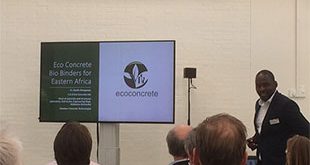
Food, shelter, health, and good sanitation should be more relevant for Africans than the vote
COMMENT | SIMPLICE A. ASONGU | Africa’s policymakers understand that strong economic and political leadership is essential to growth and stability. For years, African economies have fared better than expected, owing to a commitment to improving governance. The question now is how to sustain the momentum.
Current strategies do not provide an adequate answer. Although leaders at a recent African Economic Conference in Addis Ababa, Ethiopia, committed to keeping governance reforms at the top of Africa’s agenda, they offered no blueprint. From my perspective, this void presents an opportunity to consider new governance paradigms, including those that borrow from two commonly discussed models: the “Washington Consensus” and the “Beijing Model.”
Development practitioners have long debated which model offers the best framework for reform. Put simply, “governance” refers to a dynamic framework of rules, structures, and processes that help a government manage its economic, political, and administrative affairs.
But which principles a government focuses on varies by approach. The model championed by the West places a premium on human rights and democracy, while the one advocated by China is more concerned with political stability and economic growth.
Since the election of President Donald Trump, the United States, which remains one of Africa’s top donors, has focused more on the principles China favors – like political stability, trade, and counterterrorism – than on human rights. The rationale is that the Beijing Model is better for Africa in the short and medium term. And, while it might not be popular to admit, Trump has a point.
Simply put, food, shelter, health, and good sanitation are more relevant for most Africans than the right to vote. Moreover, only a moderately wealthy population, with a healthy middle class, can adequately demand the rights that democracy provides. Paradoxically, the fastest way to build a strong middle class in Africa would be to move toward the hierarchy of principles that China’s model promotes.
For Africa to reorient its governance approach, and embrace a post-Washington Consensus, its leaders must commit to improving institutional effectiveness and economic management.
The first set of reforms would involve establishing clear lines of sovereignty with international partners. Africa’s relationship with Western donors, for example, has historically placed individual rights over national rights. But in my view, individual rights should not supersede sovereign ones. Punishing entire countries for laws that affect a minority is counterproductive.
An example of such collective punishment occurred in Uganda in 2014, when the World Bank froze some $90 million in loans following the government’s enactment of legislation criminalising homosexuality. As a Ugandan government spokesman said at the time, the bank “should not blackmail its members” to adopt Western values. Yet, when governance models are judged solely through the lens of the Washington Consensus, there is very little alternative.
Along the same lines, the second set of reforms pertains to prioritising economic rights over political rights. For example, politicians who manage an economy well should not be subject to term limits. Neither Singapore nor China is a democracy; but leaders in both countries have used their political power to improve living standards. Forcing leaders to step down in the middle of economic reforms seems counterproductive.
These are not far-fetched ideas. Today, leaders in Rwanda, which is widely considered an African success story, have improved stability by moving away from the Washington Consensus approach to governance.
Politically, Rwanda is strong, disciplined, and organised, but it is not liberal. The landslide reelection of President Paul Kagame last year had more to do with power than democracy. Although Kagame remains popular, his government was criticised for stifling free speech and human rights in the run-up to the vote. The conclusion I draw is not that human rights don’t matter, but that political discipline and imperfect forms of democracy are acceptable if the tradeoff is sustained progress in economic and institutional governance.
We should be intellectually honest and call a spade a spade. Rwandans should not be ashamed to value economic and administrative strength more than fair elections. The question for other African states seeking to reform their governance models, then, is how much of Rwanda’s approach to emulate.
Neither the Washington Consensus nor the Beijing Model has all the answers. But, as Rwanda has demonstrated, if discipline and strong leadership are improving lives and delivering public goods, perhaps liberal democracy should be a long-term priority.
*****
Simplice A. Asongu is Lead Economist in the research department of the African Governance and Development Institute.
Copyright: Project Syndicate, 2018.
www.project-syndicate.org
 The Independent Uganda: You get the Truth we Pay the Price
The Independent Uganda: You get the Truth we Pay the Price



